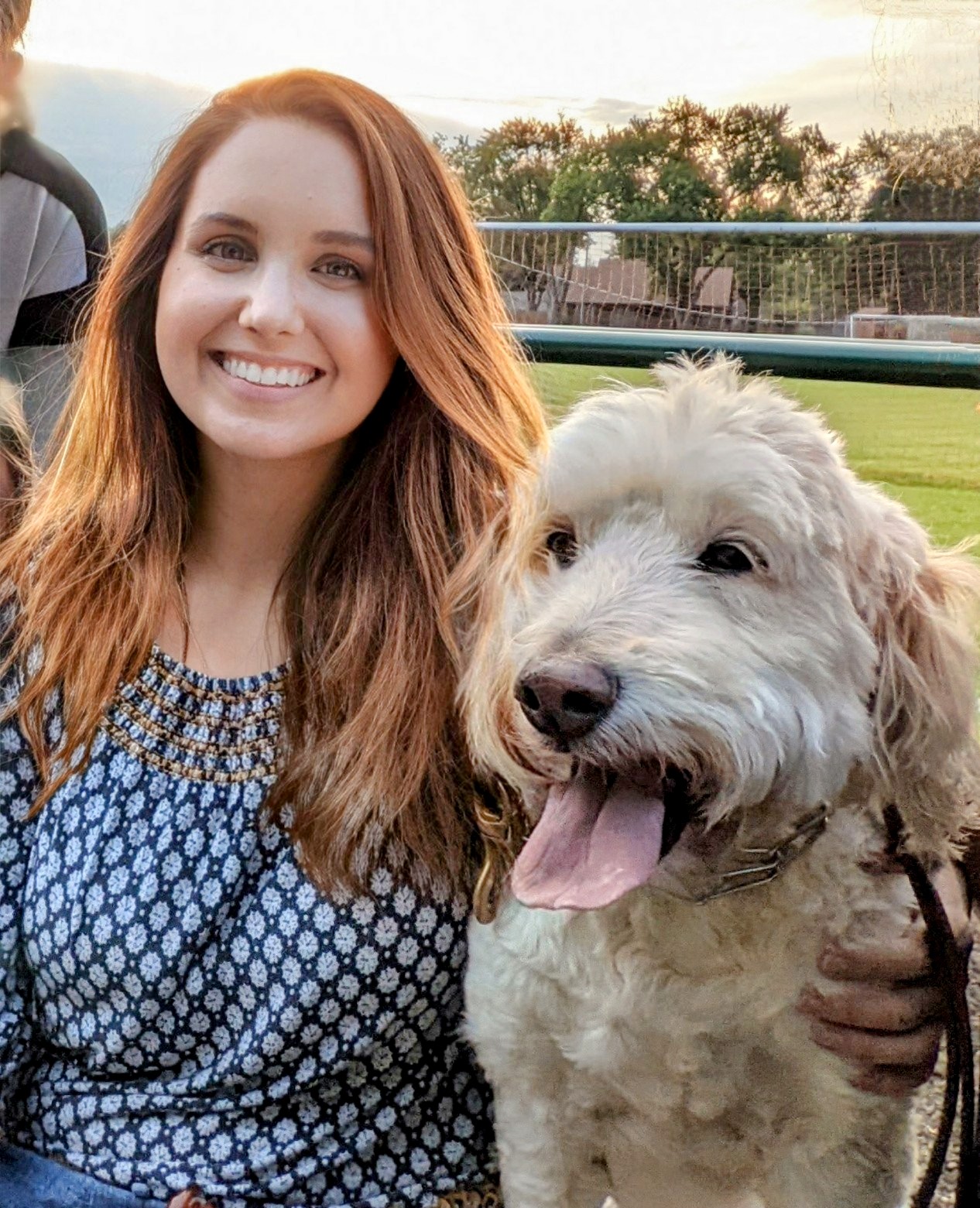As a goldendoodle owner, you may be wondering how many pups your dog can have. Standard goldendoodles can have litters of anywhere from one to twelve puppies, but the average litter size is six. So if you’re thinking about adding to your family, a standard goldendoodle might be the perfect pup for you!
The average litter size for a goldendoodle is six puppies.
The goldendoodle is a unique and beloved breed of dog that is slowly growing in popularity. Unlike many regular canine breeds, goldendoodles are fairly renowned for their larger-than-usual litter sizes – averaging around six puppies per litter.
For goldendoodle owners who want to take the plunge into responsible parenting, this large of a litter can seem pretty daunting!
However, with the proper supplies and resources, raising and loving multiple goldendoodle puppies can become an incredibly rewarding experience that all members of the family can be involved in.

Standard goldendoodles can have litters of anywhere from two to twelve puppies, but six is the most common number.
Goldendoodles, a cross between a goldendoodle and a poodle, are an increasingly popular family pet. Not only are goldendoodles beautiful, but they come with the intelligence of a poodle and the outgoing attitude of a goldendoodle.
When it comes to goldendoodle litters, there can be quite a range from two to twelve puppies per litter – however six is fairly typical. This is why goldendoodles make such great companions; not too many puppies all at once to manage! Each pup has an individual personality that adds to the charm of having one in your life.

Some factors that can affect how many puppies a goldendoodle has include the age and health of the dam, as well as the size of the litter.
When it comes to goldendoodle puppies, there are a few factors that can affect how many puppies the pup will have in a litter. The age and health of the goldendoodle’s dam, also known as the mother dog, will influence the size of the litter – with an older or unhealthier mother sometimes having smaller litters than younger or healthier dogs.
Additionally, sometimes goldendoodles may unexpectedly only have one puppy in a litter – even if both parents are healthy and relatively young. This is due to numerous things including genetics and size difference between parents which can make it difficult for goldendoodles to have large litters.
However, most goldendoodles have a somewhat average-sized litter ranging from three to six puppies depending on these other factors.

If you are thinking about getting a goldendoodle, be prepared for a lot of puppy kisses!
Goldendoodles are a unique and loving breed of pup, and getting one promises life full of unconditional puppy love! As the offspring of two majestic breeds–Golden Retrievers and Poodles–Goldendoodles are highly praised for their good temperaments, intelligence, and trainability.
Of course, this means that you can also expect an abundance of puppy kisses when you bring a goldendoodle into your home. Get ready to be showered with tail wags and slobbery smooches!
Goldendoodles make wonderful companions who will stick around to keep you company for a long time.
All in all, goldendoodles are a great breed for many reasons and the litter size is no exception. With an average litter of six puppies, you’ll have plenty of chances to get lots of puppy love.
Furthermore, when considering all the factors that can affect a goldendoodle’s litter size, it’s best to consult with experienced breeders who can provide valuable advice and guidance on how to ensure your goldendoodle has a healthy and happy pregnancy.
In conclusion, it is possible for standard Goldendoodles to have anywhere between one and twelve puppies, although the average litter size is usually six to eight. As a potential Goldendoodle owner, it is important to research the breed and be prepared to provide enough space and attention for your pup’s litter if they are expecting. Additionally, it is essential to consult a vet in order to make sure that both mother and puppies stay safe during the birthing process.
Related posts:

Hi – I’m Erika – welcome to Sit Stay Doodle! I began this blog in honor of my beloved Goldendoodle, Daisy, who has taught me so much about goldendoodle care. Whether you’re thinking about bringing your first goldendoodle home, or an experienced doodle owner, Sit Stay Doodle is the place for you! Thanks for reading! To contact me, reach out at: sitstaydoodle@gmail.com